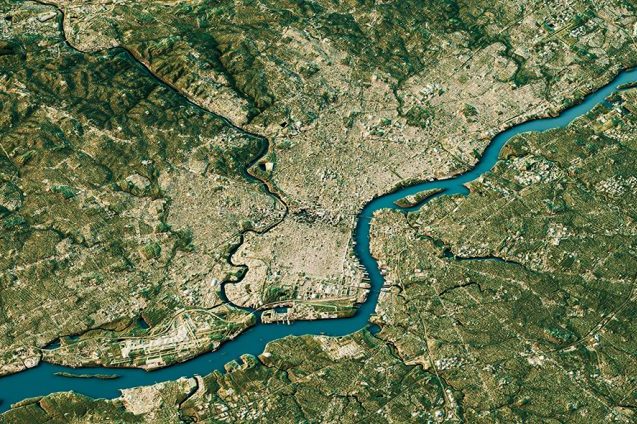PROJECT: WATER FOR RESILIENT LANDSCAPESCo-production of knowledge
The linkages between water and forests are highly complex and context specific, with profound importance for water yield, water quality, and hydrological flows. Land-use change will almost always have impacts on the water cycle and other ecosystem services in the landscape, which need to be accounted for.

Decision-making on landscape management must be based on science and integrated approaches that go beyond sectoral scopes. SIWI’s Water for Resilient Landscapes (WRL) team contributes to this important co-production of knowledge.

Areas where the Water for Resilient Landscapes team contribute
Forest and landscape restoration
The WRL team supports the generation of new knowledge on water-relevant issues linked to forest and landscape restoration, as well as information exchange related to best-practice examples. Loss of ecosystem services and the hydrological functioning of landscape is often driven by land degradation caused by unsustainable land and forest management practices.
The WRL team has therefore worked closely with the World Overview of Conservation Approaches and Technologies (WOCAT) to strengthen knowledge about sustainable land and water management practices, especially in drylands, and evaluated the Best Practices database of the Convention to Combat Desertification (UNCCD).
The report can be found in the UNCCD Knowledge Hub.
Read more about water-smart forest and landscape restoration
Climate change, landscapes and water
It is widely acknowledged that water plays a key role in climate adaptation, while water’s role in climate mitigation is rarely accounted for. Therefore, SIWI together with Stockholm Resilience Centre, Potsdam Institute for Climate Impact Research, GIZ and UNDP collaborated to compile the first-ever summary of current research on the topic in the report The esssential drop to reach Net-Zero: Unpacking Freshwater’s Role in Climate Change Mitigation.
The WRL team led the report chapter focused on freshwater’s role for climate mitigation in land-based systems, which highlights how mitigation in land-based systems is highly dependent on a functioning water cycle.
In 2019, the role of sustainable land and water management for climate change mitigation and adaptation was assessed in the Special Report on Climate Change and Land, from the Intergovernmental Panel on Climate Change. SIWI’s Professor Anna Tengberg was one of the contributing authors.
Nature-based solutions in forestry
Nature-based solutions can make forest management more sustainable than conventional forestry. The WRL team offers expertise on approaches that support water-related ecosystems services. With SIWI’s focus on governance, the team often contributes knowledge on the links between science, policy, and practice, including in this special issue of the journal Unasvlva: Forests: nature-based solutions for water.
Agroforestry and Water for resilient landscapes
In agroforestry, trees are integrated into agricultural land, providing multiple benefits. The practice can improve food production systems and increase farms resilience and access to water, without adversely affecting downstream water users.
The WRL team is member of the Agroforestry Network to include integrate consideration to of water flows in their activities. More info on this can be found in the policy briefs Agroforestry and Water for resilient landscapes and Agroforestry for adaptation and mitigation to climate change.
LoCoFoRest
The Programme also supports training activities such as Locally Controlled Forest Restoration to learn more about water and landscapes through recurring webinars.
Explore